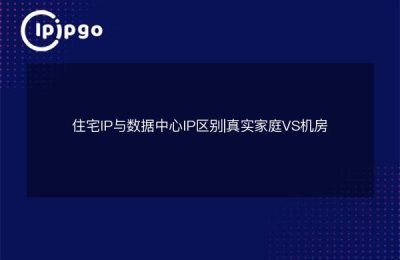
Why does Japanese cross-border e-commerce need a local ISP agent?
The biggest headache for sellers doing Japanese sites is account association and access anomalies. For example, if you use a domestic server to manage your store, the background suddenly requires secondary verification; wind control is triggered when you operate accounts in bulk; and access is restricted when you view competitor prices. The root cause of these problems isIP address purity and attributionThe
Japanese e-commerce platforms have a strict identification mechanism for IPs: first, to see if the IP is from a local home broadband (ISP), and second, to detect if the IP is shared by more than one person. If a data center IP or public proxy is used, nine times out of ten, it will be judged as an abnormal login. This is the time toJapan Residential ISP Agency--Accessed through a real home network environment with an IP address identical to that of an ordinary Japanese Internet user.
Three core metrics for selecting a Japanese proxy IP
Not all agents can address cross-border compliance issues, and the key elements are illustrated here in a table:
| Type of indicator | flawed program | correct program |
|---|---|---|
| IP Source | Server room servers/public VPN | NTT/Softbank and other local broadband IPs |
| connection method | Fixed IP for long-term use | Dynamic on-demand IP switching |
| Protocol Support | HTTP base protocol only | Socks5/HTTPS full protocol |
In the case of ipipgo, their Japanese proxy pool accesses the8 major cities including Tokyo and OsakaThe home broadband that supports API real-time IP address change. A friend who does Rakuten store has tested it, using dynamic residential IP to operate 20 accounts at the same time, and it has not triggered verification for three months.
Three steps to set up a compliant access environment
No complicated techniques here, something that works right away:
1. browser quarantineBind exclusive IP with fingerprint browser, for example, store A will be fixed in this environment after logging in with Tokyo IP to avoid sharing IP with multiple accounts.
2. Scenario-based IP schedulingDynamic IP polling for product collection, static IP for store back-office management, and separate configuration of Osaka IP for advertisement placement.
3. Traffic Encryption Policy: Isolate sensitive operations such as login sessions, payment interfaces, etc. from other business traffic through ipipgo's Socks5 proxy settings
A guide to avoiding pitfalls in practical applications
I have come across the most typical case: a seller bought a service called "Japanese native IP", but the result is that it was blocked within a week. Later, I used ipipgo'sIP Health Check FunctionOnly then did I realize that the actual number of people using that proxy was over 200 and it wasn't an exclusive IP at all.
Here are two self-tests to teach you:
① Visitsipinfo.ioCheck the ASN number, authentic home broadband has an ASN ofNTT CommunicationsmaybeKDDIbeginning
② Google search "my IP address", the result page will show the operator if it isISPInstead of the data center name
Frequently Asked Questions
Q: I need to run Amazon and Rakuten at the same time, should I buy more than one IP?
A: No need, through ipipgo'sSub Account FunctionsIndependent IP channels can be created, each store is isolated by a dedicated line
Q: What should I do if I have slow access to Japanese IP?
A: Select SupportBGP Intelligent RoutingAs a service provider, ipipgo has 12 network nodes in Japan and automatically matches lines with the lowest latency.
Q: How can I prevent my IP from being hacked by the platform?
A: two points to note: 1. Avoid high-frequency operations with the same IP 2. Regularly use ipipgo'sSurvival Detection InterfaceReplacement of IP pool
In the end, choosing the right proxy service provider can solve the problem of 80%. Professional service providers like ipipgo not only provide real Japanese home IPs, but also customize them according to business scenarios.IP Survival Cyclerespond in singingswitching strategy. They recently went live with an IP blacklist monitoring feature that automatically filters risky IPs that have been flagged by the platform, which is especially useful for sellers who need to operate for a long period of time.








